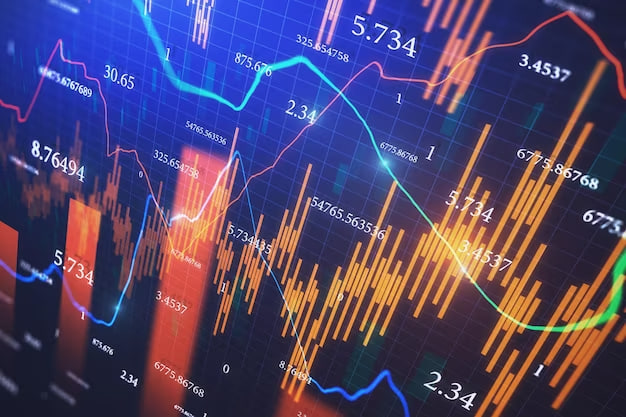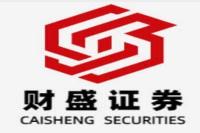Ngozi Okonjo-Iweala: A Second Term as WTO Director-General – Reforming Global Trade for a Better Future
Meta Description: Ngozi Okonjo-Iweala's reelection as WTO Director-General, her impactful first term, challenges facing global trade, WTO reform, future of international trade cooperation, Okonjo-Iweala's leadership, and the significance of her continued tenure.
Hold onto your hats, folks, because the world of global trade just got a whole lot more interesting! Ngozi Okonjo-Iweala, the powerhouse economist and diplomat, has just been unanimously re-elected as the Director-General of the World Trade Organization (WTO). This isn't just a re-election; it's a resounding vote of confidence in her leadership, a testament to her impactful first term, and a clear signal that the global community is ready to tackle the complex challenges facing international trade head-on. Think of it as a sequel to a blockbuster movie – only this time, the stakes are even higher, the challenges even more daunting, and the potential for positive change even more significant. We're talking about shaping the future of global commerce, folks! This isn't just about tariffs and trade agreements; it's about fostering cooperation, building trust, and ensuring a more equitable and prosperous world for all. Okonjo-Iweala's re-election is a beacon of hope in a world often characterized by division and uncertainty. Get ready to delve into the fascinating details of her remarkable journey, the monumental tasks ahead, and the profound implications for the global economy – because this is a story with far-reaching consequences for each and every one of us. Prepare to be inspired, informed, and maybe even a little bit awestruck by the sheer force of will and unwavering commitment displayed by this exceptional leader. Let's dive in!
Ngozi Okonjo-Iweala: A Leading Figure in Global Trade
Ngozi Okonjo-Iweala's second term as WTO Director-General is a significant event in the world of international trade. Her re-election isn't just a formality; it's a powerful statement about the global community's belief in her vision and leadership. But who is this remarkable woman who's steering the ship of global trade?
Okonjo-Iweala's background is as impressive as her accomplishments. Before taking the reins at the WTO, she spent 25 years at the World Bank, culminating in her role as Managing Director. That's not all, folks – she also served as Nigeria's Minister of Finance and Minister of Foreign Affairs, demonstrating her remarkable versatility and deep understanding of both domestic and international economic policy. This multifaceted experience is invaluable in her role at the WTO, allowing her to navigate the complex political landscape and forge consensus among diverse nations. She wasn't just a bystander in these roles; she was a key player, a true game-changer, actively shaping economic policies and fostering international collaboration. It's this experience that makes her uniquely qualified to lead the WTO at this critical juncture. Her unique blend of expertise in finance, diplomacy, and international relations makes her an ideal candidate to guide the organization's future direction.
Her First Term: A Foundation for Reform
Okonjo-Iweala's first term as WTO Director-General, which began in 2021, wasn't exactly a walk in the park. She inherited an organization facing significant challenges, including deep divisions among member states and a stalled multilateral trading system. Yet, despite these obstacles, she made significant strides in reforming the WTO and advancing its agenda. It was like taking on a dilapidated building and transforming it into a modern masterpiece – a Herculean task, to say the least.
One of her key achievements was the successful negotiation of a landmark agreement to waive intellectual property rights for COVID-19 vaccines, a breakthrough that marked a turning point in global vaccine equity. This wasn't just a political victory; it was a humanitarian triumph, showcasing her commitment to using trade policy to improve public health outcomes on a global scale. It's this kind of bold action that set her apart and cemented her position as a force to be reckoned with in the international arena. She didn't just talk the talk; she walked the walk, demonstrating her commitment to multilateral cooperation and using her unique position to make a tangible difference in the lives of millions.
Moreover, she successfully launched ambitious reform efforts aimed at modernizing the WTO's rules and resolving long-standing disputes. The WTO is no stranger to gridlock, but under her leadership, progress was made, albeit slowly. Think of it as a marathon rather than a sprint – a slow and steady approach that ultimately yields significant results. She skillfully navigated the intricacies of international negotiations, building bridges and fostering consensus among member states with often conflicting interests. This ability to cultivate relationships and build coalitions is critical to the success of the WTO and a hallmark of her leadership.
Challenges Ahead: Navigating a Turbulent Global Landscape
While Okonjo-Iweala's re-election is a cause for celebration, it's important to acknowledge the significant challenges she faces in her second term. The global economy is anything but stable; geopolitical tensions are running high, protectionist sentiments are on the rise, and the WTO itself is in need of significant reform. It's not a question of if she'll face hurdles; it's how she'll navigate them.
The ongoing war in Ukraine, for example, has significantly disrupted global supply chains and exacerbated existing trade tensions. Dealing with these disruptions requires deft diplomacy and a deep understanding of the geopolitical implications of trade policy. This is where Okonjo-Iweala's experience in international affairs shines through – her ability to navigate complex geopolitical situations and find common ground is invaluable in addressing these challenges. She's not just an economist; she's a skilled diplomat, a true master of negotiation, able to broker deals and find solutions where others have failed.
Beyond geopolitical issues, the WTO faces internal challenges. Reforming the organization's dispute settlement system, for instance, is a priority. This system, which provides a crucial mechanism for resolving trade disputes, has been significantly weakened in recent years, and its restoration is vital to maintaining a stable and predictable trading environment. It's a complex issue, fraught with political complexities, but Okonjo-Iweala's experience and determination suggest she's up to the task. She has a proven track record of overcoming obstacles and building consensus, suggesting that she'll approach this challenge with the same tenacity and strategic vision that characterized her first term.
The Future of Global Trade: A Collaborative Approach
Okonjo-Iweala's vision for the WTO is one of collaborative reform, focusing on strengthening the multilateral trading system and making it more inclusive and effective. This is not just about tinkering with existing rules; it's about fundamentally reshaping the way the organization functions to better address the challenges of the 21st century. She recognizes that global trade cannot thrive in isolation; it requires cooperation and a commitment to shared goals.
Her focus on inclusivity is particularly noteworthy. She's committed to ensuring that developing countries have a stronger voice in the WTO and benefit more fully from the multilateral trading system. This is critical, as many developing nations have been marginalized in past trade negotiations. It's about equitable participation, not just a token gesture – she wants to ensure that the benefits of global trade are shared fairly across all member states. This holistic approach, encompassing both economic and social factors, is a testament to her profound understanding of the interconnectedness of trade and development.
Frequently Asked Questions (FAQs)
Q1: What are the most pressing challenges facing the WTO under Okonjo-Iweala's leadership?
A1: The WTO faces multiple challenges, including reforming its dispute settlement system, addressing the impact of geopolitical tensions on global trade, and ensuring a more inclusive and equitable trading system for developing countries. These are not easily solved problems, but require skillful diplomacy and strategic vision.
Q2: How has Okonjo-Iweala's background prepared her for this role?
A2: Her extensive experience at the World Bank, as Nigeria's Finance and Foreign Affairs Minister, and her role as Chair of Gavi, the Vaccine Alliance, provide her with a unique blend of economic, diplomatic, and public health expertise, making her exceptionally well-suited to lead the WTO.
Q3: What are some of her key achievements during her first term?
A3: Key achievements include the successful negotiation of a waiver on intellectual property rights for COVID-19 vaccines and the launch of ambitious reform efforts aimed at modernizing the WTO's rules and resolving long-standing disputes.
Q4: What is her vision for the future of the WTO?
A4: Okonjo-Iweala envisions a reformed WTO that is more inclusive, effective, and better equipped to address the challenges of the 21st century. This includes strengthening the multilateral trading system and ensuring that the benefits of global trade are shared more equitably among member states.
Q5: How does her re-election impact global trade relations?
A5: Her re-election provides stability and continuity at a time of great uncertainty in the global economy. It signals a commitment to multilateralism and reform, which is crucial for the future of global trade cooperation.
Q6: What are the implications of Okonjo-Iweala's continued leadership for developing countries?
A6: Her commitment to inclusivity suggests that developing countries will have a stronger voice in the WTO and benefit more fully from the multilateral trading system under her continued leadership. This focus on equitable participation is a significant step toward a more balanced and just global trading system.
Conclusion: A Beacon of Hope for Global Trade
Ngozi Okonjo-Iweala's re-election as WTO Director-General is more than just a continuation of her first term; it's a renewed commitment to reforming global trade for a better future. Her unique background, coupled with her proven leadership abilities, positions her to tackle the complex challenges facing the WTO and the global trading system. While the road ahead will undoubtedly be challenging, her unwavering commitment to multilateralism and inclusive growth offers a beacon of hope for a more equitable and prosperous world. This isn't just about economics; it's about building a fairer, more sustainable global community. The world watches with anticipation to see how she will shape the future of global trade, and whether she can truly deliver on the promise of a reformed and revitalized WTO. The next four years will be critical.



